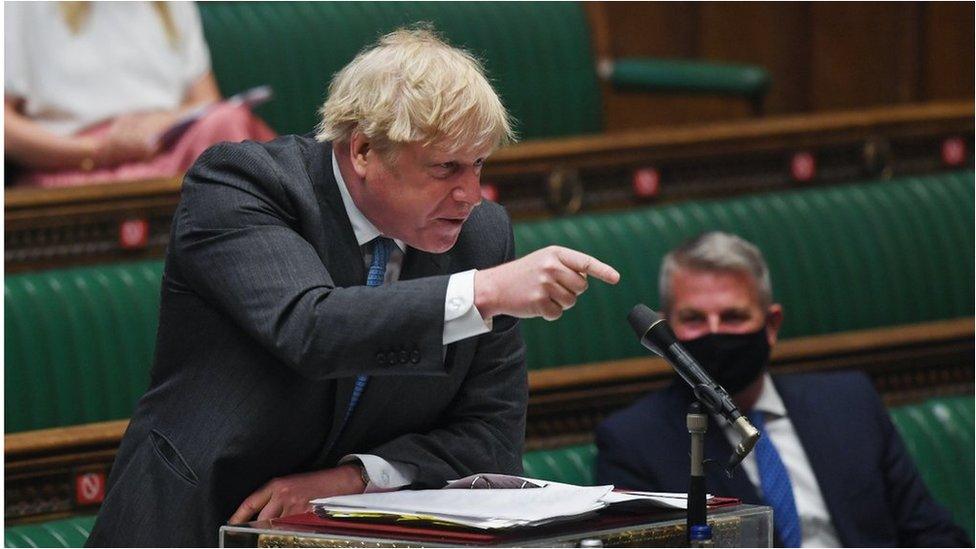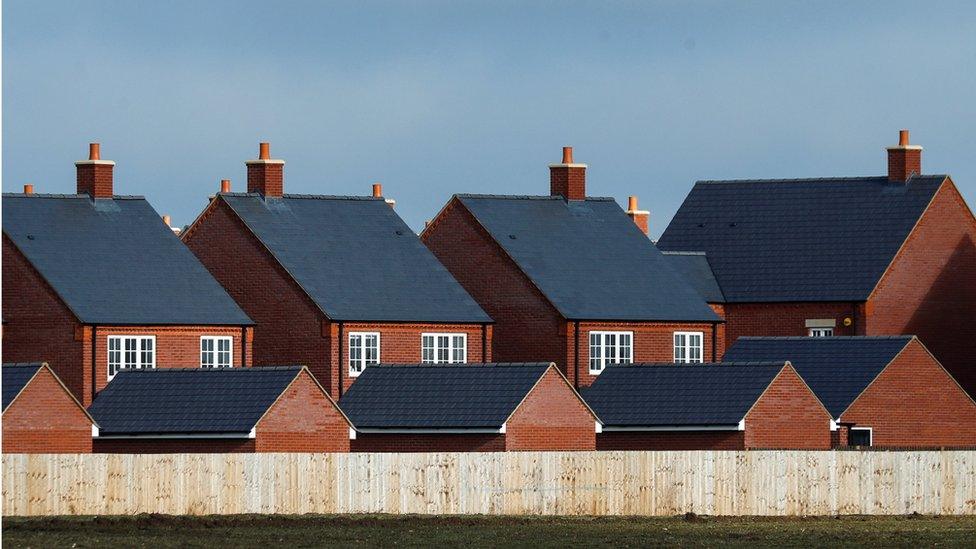PMQs: Five Boris Johnson claims fact-checked
- Published

There were heated exchanges at Prime Minister's Questions on Wednesday as Boris Johnson and the Labour leader Keir Starmer clashed over the controversial refurbishment of the Downing Street flat - among other issues.
The prime minister insisted that he paid for work on No 11 Downing Street (where he lives) "personally" - but would not be drawn on whether someone else had funded it first.
The Electoral Commission has announced that it is launching an investigation, because there are "reasonable grounds to suspect that an offence or offences may have occurred".
We've looked at some of the claims made in Parliament:
Boris Johnson: "I'd rather not spend taxpayers' money, by the way, like the last Labour government, which spent £500,000 of taxpayers' money on the Downing Street flat"

The figures for annual spending appear in a parliamentary answer, external from a Cabinet Office minister.
The £500,000 figure is what you get if you adjust for inflation (ie rising prices) and add up all the spending over the period of Labour governments between 1997 and 2010.
If you take the amount of money actually spent at the time, to reflect the annual £30,000 allowance, there were several years when the spending was over that level.
But the total spending over 13 years was £370,000, which is just under £30,000 a year.
We do not yet have the figure for 2020-21, so we do not know whether Mr Johnson took the full £30,000 contribution of public money towards the refurbishment of the Downing Street flat.
Boris Johnson: "Last night, our friends in the European Union voted to approve our Brexit deal, which he [Keir Starmer] opposed"
If the prime minister is referring to the vote in the House of Commons that followed the deal then this claim is not correct.
The Labour leader voted in favour of the legislation on the agreement, as did the vast majority of Labour MPs.
Mr Starmer had said a "thin deal was better than no deal". He had criticised a number of aspects of the deal.
The vote took place on 30 December and was backed by the Commons by 521 to 73 votes after Parliament was recalled.
Boris Johnson: "When it comes to misleading Parliament... he [Keir Starmer] said he didn't oppose this country... leaving the European Medicines Agency, a fact he was then forced to retract"
The prime minister was referring to an exchange in February - over the UK's vaccine rollout - when he said that the Labour leader backed the UK staying in the European Medicines Agency (EMA).
This is the EU body which evaluates new medicines and authorises the use of vaccines. Mr Starmer vehemently denied this claim at the time.
But as we pointed out back in February, he had actually spoken in favour of staying in the EMA in 2017 on two occasions, in the context of the ongoing Brexit debate back then.
Mr Starmer later admitted that he was "wrong" to call the prime minister's claim "complete nonsense" and acknowledged he had previously expressed support for the EMA.
Boris Johnson: "We've done 50% of the population and 25% of the adult population have now had two doses [of vaccine]"
According to the government figures, external from 27 April, more than 33.8 million people in the UK have had the first dose of the vaccine. That is indeed about half of the population.
And on Tuesday, the Department of Health said more than a quarter of adults in the UK - 13.2 million - had been vaccinated with both doses of a Covid-19 jab.
So, these figures are correct.

Boris Johnson: "It's this Conservative government that has built 244,000 homes in the last year which is a record over the last 30 years"
The most recent figure for the number of homes built in England was 148,620 for the whole of 2020.
The figure of 244,000 is for the number of net additional dwellings, external in England between April 2019 and March 2020.
That was a record for the last 30 years.
But that's not just homes built - net additional dwellings is a broad definition reflecting new houses completed, plus gains or losses from conversions, changes of use and demolitions and even some caravans and house boats.
It should also be said that very few of the new homes are being built by government - 82% of the completions were from private enterprise, 17% from housing associations and 1% from local authorities.


